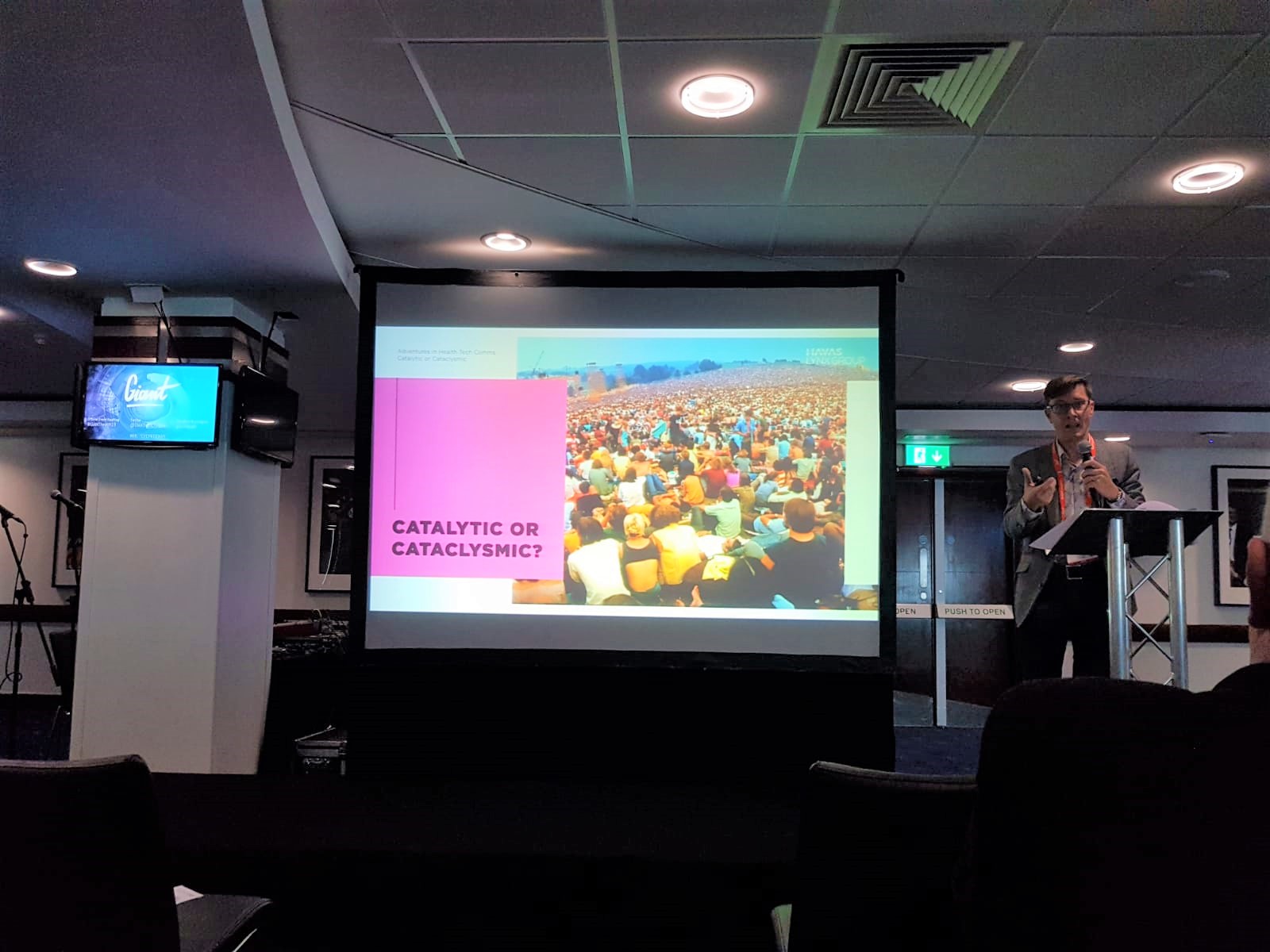16th October 2019
BlogRob Howlett, Senior Medical Writer, this year attended day 1 of the GIANT Health event in London. In this blog, Rob summarises his learnings from Day 1.
The 2019 Global Innovation and New Technology (GIANT) healthcare event united a broad group of healthcare professionals, entrepreneurs, health-tech founders and innovators that all share a common ambition – to improve healthcare globally by challenging dogma and bringing about disruptive innovation. This may seem like a lofty goal, but the determination to truly change the way healthcare is delivered and communicated was on display throughout Day 1. However, this doesn’t mean it was viewed as an easy task.
The many challenges faced were a focal point of an opening panel discussion led by health-tech entrepreneurs that have forged their way into the innovative space as founders of health-tech startups. Describing the special type of personality required to take on the ‘insane journey’ of creating a health-tech startup, the panel highlighted the support required, from strategic business development to effective communication planning, and the difference this can make in achieving success. But, for those willing to embark on the journey there is the opportunity to truly change the way we treat disease.
One such change could be an evolution in how we view disease of old age, as discussed by David Wood, Chair of London Futurists. As healthcare has improved, we have found that we are increasingly afflicted by diseases associated with ageing, such as heart disease, cancer and dementia. Traditionally we have tackled these conditions in isolation, but a new wave of thinkers is looking at what could be seen as the underlying cause of these diseases – the aging process itself. By halting the damage our body accrues with age, we may uncover biological mechanisms that enable us to both increase our lifespan whilst maintaining health. But how do we uncover these new therapies?
A possible source of solutions could lie in the development of improved artificial intelligence (AI). The potential for AI to impact all areas of healthcare is only starting to be realised, which was reflected in the level it was discussed across sessions by those leading the frontier of industry innovation. From creating new therapeutic molecules and modeling our healthcare systems, to caring for our elderly and nudging us towards healthier behaviors, the potential for AI to change the way healthcare works seems endless. When this is combined with the increasing prevalence of immersive communications, such as augmented and virtual reality technologies, we need to consider how we feel as a society about this potential re-engineering of the human experience. This thorny subject was tackled by Dr. Vernon Bainton in his talk ‘Adventures in health-tech comms: catalytic or cataclysm’.
In his talk, Dr. Bainton gave an overview of how health technology is already changing lives, as well as the ethical issues they are beginning to present. Current applications range from the use of virtual reality to pre-expose New York police officers to emotive situations, to the burgeoning artificial reality industry that aims to help those with dementia experience a bygone age that feels more familiar to them. However, as these technologies develop, they bring about a myriad of ethical questions. How do we deal with privacy issues if sharing our health data is how we predict disease onset? As we become more capable of improving human capabilities, where do we draw the line? What is considered an ‘acceptable lie’ to someone with dementia as we develop ‘false realities’ as therapy? A common theme across sessions would suggest the key to tackling these challenges lies in ensuring we effectively communicate and discuss these developments in healthcare.
The GIANT event is an incredible expose into what the healthcare industry may be capable of and the opportunities that lie before us. Walking away, it is hard not to feel excited by the future and how it could change our lives. But what is apparent throughout is the need for effective communication. From ensuring health-tech startups are able to convey the advances they can deliver, to enabling dialogue between humans and AI in an augmented reality, the need for clear, effective and compelling communication has never been more paramount.
